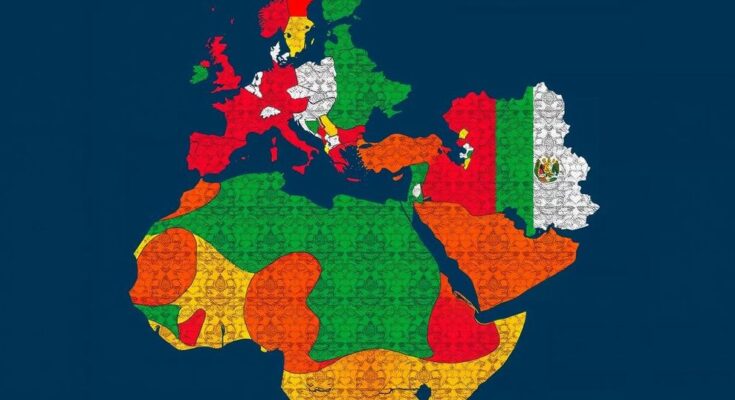Russian President Vladimir Putin pledged ‘total support’ for Africa at a Sochi summit, highlighting military and economic cooperation as African nations lean away from Western allies. His remarks, delivered by Foreign Minister Lavrov, resonate with a growing trend among African leaders who prefer Russian partnerships, particularly in combating extremism. Despite criticisms of Russia’s military involvement, the shifting allegiances reflect a pragmatic approach to foreign alliances by African countries.
In a recent summit in Sochi, Russian President Vladimir Putin conveyed his commitment to support African nations in their battles against terrorism and extremism. His message, delivered by Foreign Minister Sergei Lavrov, was received amid a backdrop of African countries reassessing their alliances, particularly with the West, in favor of Moscow. Burkina Faso’s Foreign Minister expressed that Russia represents a preferable partnership compared to former colonial powers, such as France, emphasizing a shift in allegiances among several African states. Africa is increasingly turning to Russia for military cooperation and assistance in various sectors, including energy and technology. Mali’s Foreign Minister highlighted ongoing projects with Russian companies and reiterated the importance of expediting efforts that benefit the Malian populace. As some African governments leverage their relationships with Russia, Wagner mercenaries, rebranded as the Africa Corps, have been positioned as a key military support option as troops from the West withdraw. Despite Russia’s increased military presence in Burkina Faso, Mali, and Niger providing necessary support to local juntas, there have been negligible advancements in curbing Islamist militancy. Nevertheless, Russian engagement is characterized by a non-interfering stance regarding domestic governance, contrasting sharply with Western approaches. The Kremlin’s growing diplomatic footprint in Africa, as stated by foreign ministry spokesperson Maria Zakharova, has countered Western fears of Russia’s isolation. Lavrov asserted that relations with African nations are evolving positively across various dimensions. Putin explicitly affirmed Russia’s unwavering support to African partners across several sectors, reinforcing military and economic cooperation. The shifting dynamics in African foreign relations have been further underscored by Emanuela Del Re, the EU special representative, who acknowledged Russia’s historical ties with the continent, urging Western powers to adapt to these developments. Countries like Rwanda are also forging partnerships with Russia, aiming to harness nuclear technology via educational exchanges. Although President Putin had previously committed to doubling trade with Africa, the expected outcomes are yet to materialize. Still, Russia’s influence in the region has augmented through alternative avenues, often viewed as destabilizing by Western analysts.
The topic of Russia’s engagement in Africa emerges from a context of shifting geopolitical alliances, where African nations, particularly those with recent political upheavals, seek alternatives to traditional Western partnerships. With historical ties dating back to the Cold War, Russia is capitalizing on dissatisfaction with Western presence, particularly in former colonies, by offering military and economic assistance, often tied to access to vital resources. As African countries navigate the impact of terrorism and military instability, their strategic alliances are increasingly evolving towards non-Western powers such as Russia.
In conclusion, President Putin’s recent promises of ‘total support’ for African nations signal a deepening alliance that emphasizes military cooperation and economic partnerships, catering to the needs of countries distancing themselves from Western influence. The responses from various African leaders indicate a growing preference for Russian assistance, based on its non-interventionist approach and regard for mutual benefit. As Russia continues to expand its footprint in Africa, the political landscape of the continent may shift considerably, reflecting a broader trend of diversification in international relations.
Original Source: www.bbc.com




